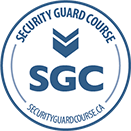What is an Arrest?
An Arrest is the process of detaining an individual for the purposes of investigating the individual’s possible involvement in a criminal activity. It is important to realize that an individual who has been arrested still has rights, and you must be respectful of those rights.
Criminal Offences
Section 494 of the Criminal Code of Canada (CCC) grants certain powers to persons making arrests under specific circumstances. One circumstance is in relation to a “criminal offence”. For purposes of the Criminal Code, this offence is any federal offence, whether in the Criminal Code or any other federal piece of legislation. The category includes summary, indictable, and dual offences. It does not include offences under provincial or municipal legislation.
Criminal Code of Canada – Section 494
Powers of Arrest
One of the core rights of any member of society is freedom. The Canadian Charter of Rights and Freedoms guarantees that an individual can only be deprived of his/her liberty if he/she has done something that runs so counter to the rights of other members of society that that freedom should be taken away. As you will appreciate, this is a very high standard to achieve. What authority do you have, as a security guard, to make an arrest?
Section 495 governs the arrest of individuals by those employed as police officers. Section 494 of the Criminal Code governs when a member of the public can make an arrest. Persons providing security services are not employed as peace officers. They are treated as members of the public for the determination of powers of arrest.
With the proper security guard training and preparation, candidates will feel confident that they possess the proper knowledge regarding health and safety, use of force, communication and radio 10 codes, and general report writing practices required on the job.
Preventing a Breach of the Peace
Section 30 of the Criminal Code provides authority for everyone (including a member of the public) to prevent or detain any person who commits a breach of the peace. Although there is no specific Criminal Code offence of breach of the peace, the section provides a sort of preventive remedy. The purpose in detaining the individual must be to interfere with or prevent the continuance of a disturbance, and must be for the purpose of giving the person into the custody of a peace officer. This provision is intended to protect those people assisting police in circumstances amounting to a riot. It should not be relied upon in any lesser circumstance.
Security Guards may encounter situations where they need to deal with indictable, summary, or criminal offences. They need to be able to accurately identify and categorize offences when on duty and understand how to perform a citizen’s arrest according to the Criminal Code of Canada.
CRIMINAL CODE OF CANADA
Types of Offences
There are three types of offences in the Criminal Code of Canada differentiated by the severity and nature of the offence committed. This presents a serious issue for Security Guards as it may impact their legal ability to affect an arrest.
Offences punishable under Summary Conviction are the least serious of offences in the Criminal Code. Unlikely, except in extreme circumstances involving repeat offenders, individuals are subject to a maximum penalty of 6 months imprisonment and a fine of up to $5000.00. In most cases, the sentences are less than the maximum penalty; however Summary Conviction offences are among the least serious. Incidents involving violence, the possession of large quantities of drugs or weapons, and crimes of a sexual nature are typically not punishable under Summary Conviction.
Offences punishable under Indictment represent the most serious offences such as Murder, Aggravated Sexual Assault, Kidnapping, and Robbery to name a few. Such offences carry serious penalties which usually involve long-term imprisonment, and sometimes even include a minimum mandatory sentence to be served. A guilty finding for these offences will usually incur at least one year imprisonment.
Finally, Dual Procedure or Hybrid offences are those which can include differing levels of severity. In such cases, the Crown is given the option of proceeding under Indictment or Summary Conviction based on their interpretation of events. For example, two individuals are arrested and charged for theft. One person stole a handful of chocolate bars valued at $5.00, while the other stole $4900.00 worth of property. Since the value of both incidents is less than $5000.00, they are both technically arrested for the same crime: CCC S.334(b) Theft Under $5000.00. As there is a great difference between the two incidents, the Crown would most likely, if proceeding with charges, charge the candy bar thief with a Summary Conviction Offence, and the other thief with an Indictable Offence. In all cases involving a Dual Procedure offence, the offence is deemed to be held under Indictment unless otherwise applied by the Crown.
Security Guards are responsible for knowledge of Section 494 when they write their Ontario Security Guard Exam.








